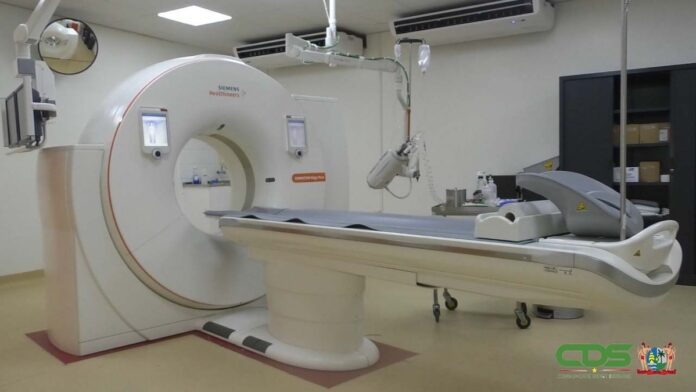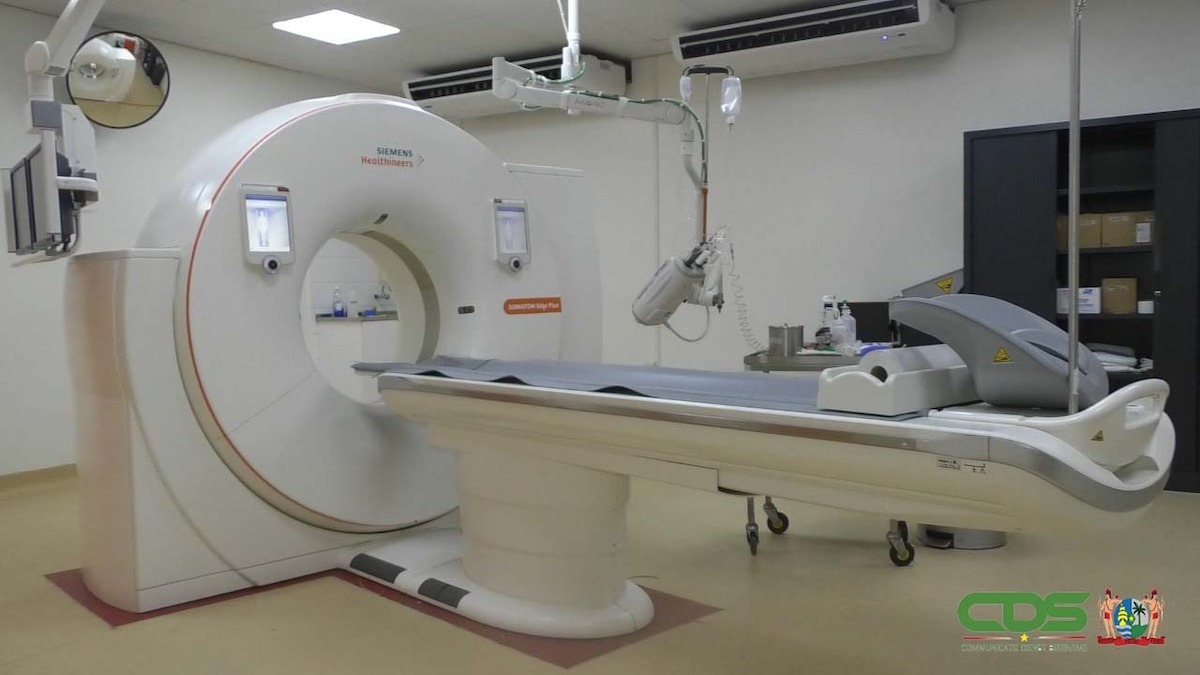
This ultra-modern CT scan, which offers the possibility of perfusion of the brain (brain scan), appears to be a great asset to the Academic Hospital Paramaribo of Suriname (AZP). The device was purchased by the Suriname government last November and is located in the renovated CT Center, which was inaugurated by President Chandrikapersad Santokhi on January 14 this year. “Previously, it was not possible to perform a perfusion brain scan in Suriname; simple CT scans of the brain were done. But now, thanks to the government, we can save human lives,” says radiologist Dr. Iswardath Thakwer (Head of Radiology).
He speaks of a tremendous credit to both the hospital and the Surinamese community. According to the specialist, the fact that brain research can now be conducted contributes to the quality of care provided by AZP. “It is definitely an improvement. Computerized tomography is unthinkable in the treatment of cerebral infarctions and a very powerful tool for creating a treatment plan.” Drs. Thacker looks back on January 14 when President Santoki signaled the opening to improve the quality of care, save lives, and expand the services provided by the AZP. The modern device provides for the possibility of a quick scan in the event of a cerebral infarction, among other things, so that the appropriate action can be taken. What is unique is that scans can be performed not only to the brain, but also to the heart, especially in children and newborns.
After the AZP informed the government of the need for a CT scan, the project file was submitted to the Ministry of Health. Subsequently, the project was approved by the Council of Ministers (RvM), for which the Ministry of Finance and Planning made the necessary resources available in full: more than one million euros. According to Dr. Thakwer, AZP is no longer dependent on third parties. The scanner is available 1 x 24 hours to the Suriname community, the efficiency of care has improved and there is no longer any question to delay the research. At the time of purchase, a full 10-year maintenance contract was signed with the supplier. The modern nature of the device also allows AZP to offer its services to neighboring countries that lack CT scans.
The need for examination arises as soon as specialists have indications of the possible presence of a brain disease. About 5 to 10 radiographs are performed daily, mainly in adults in the 40-50 age group. The care recipient group consisted of children and adults, who were referred to the radiology department by specialists, among others. A large proportion of those in need enter through the emergency department for reasons including traffic accidents.
The hospital currently lacks an MRI scan, and the government has been advised of the need as well. At the inauguration of the center, President Santoje requested that the project file be made available as well. Drs. Thakoer explains that there are private clinics in Suriname with such a device. AZP has four radiologists at its disposal. These are the medical professionals who use medical imaging techniques to establish human diseases. The specialists are assisted by radiodiagnostic laboratory technicians who work in shifts.

Zombie specialist. Friendly twitter guru. Internet buff. Organizer. Coffee trailblazer. Lifelong problem solver. Certified travel enthusiast. Alcohol geek.

